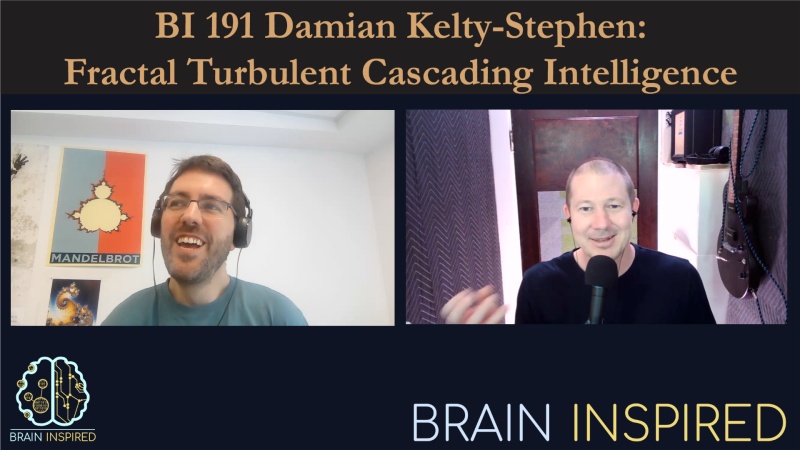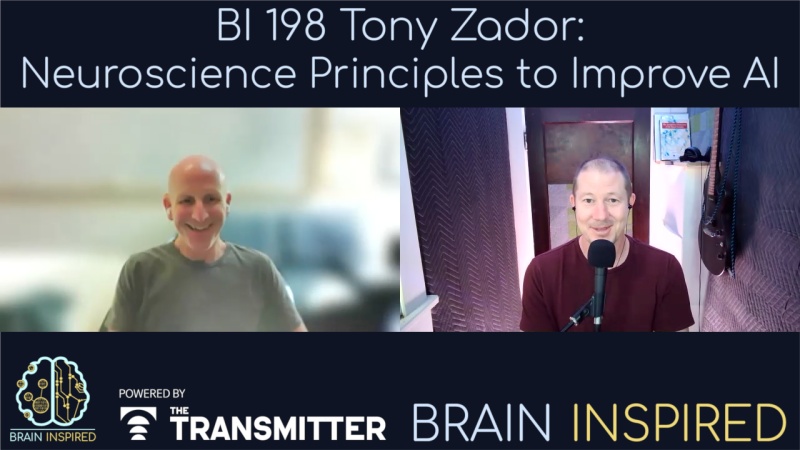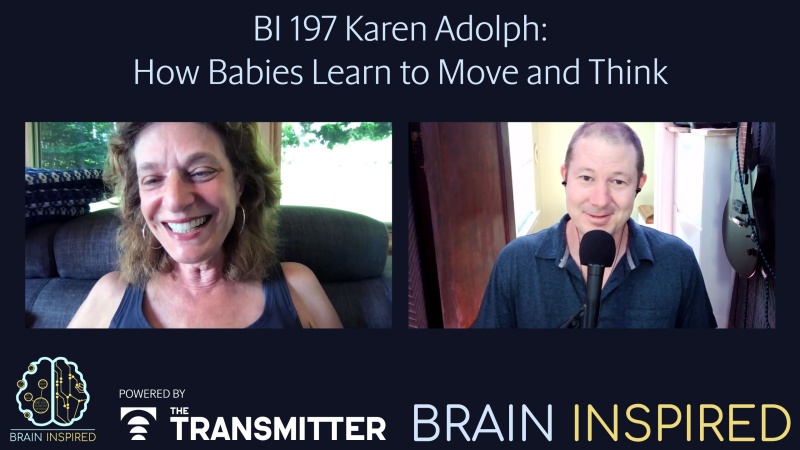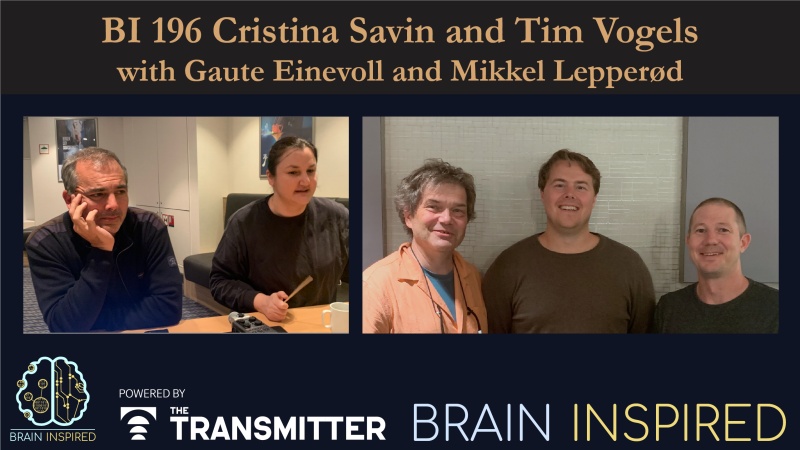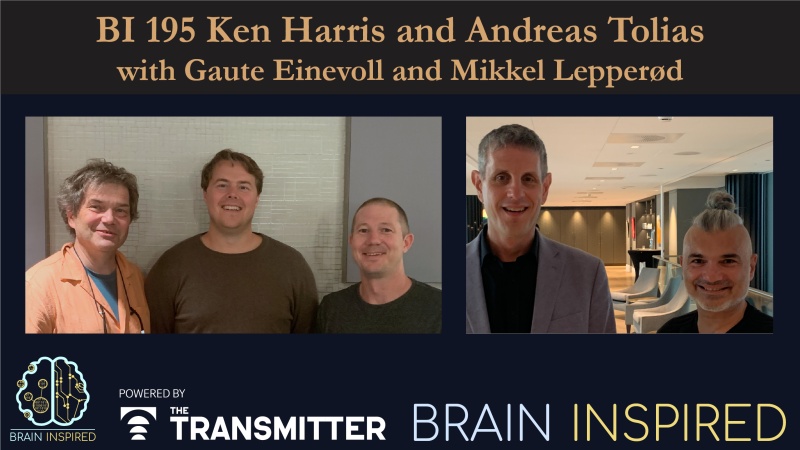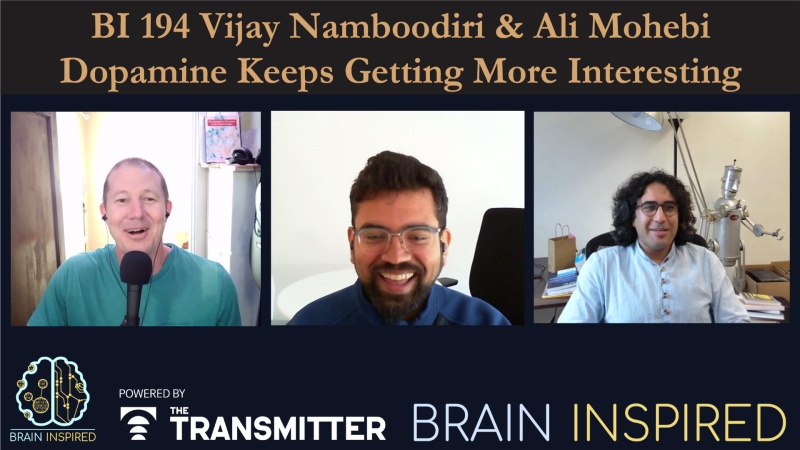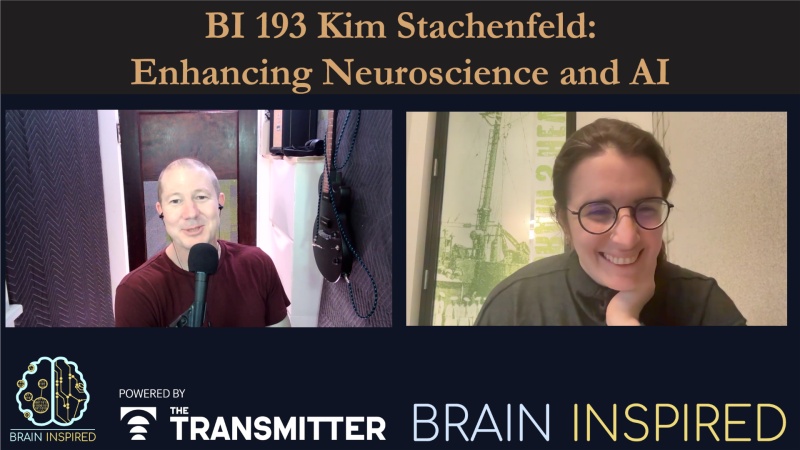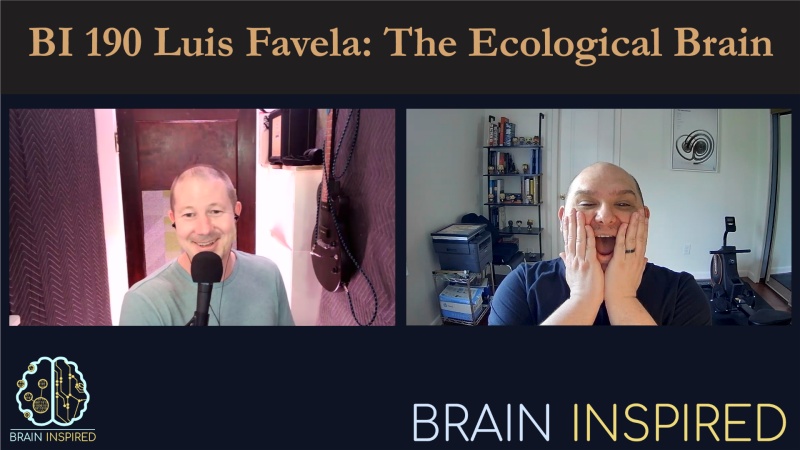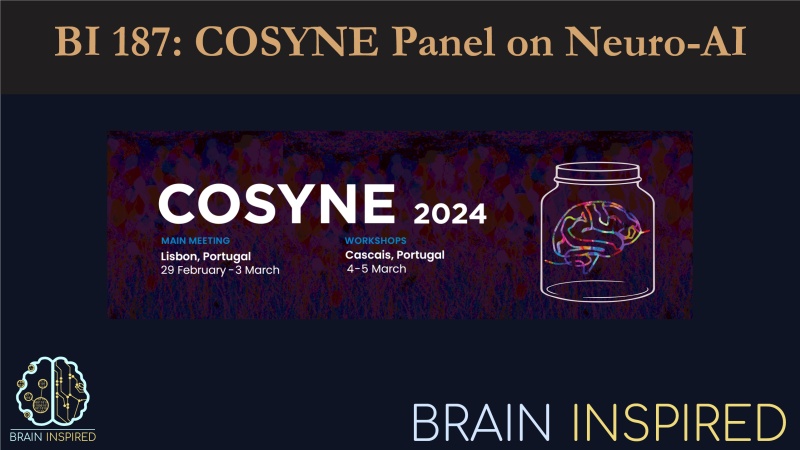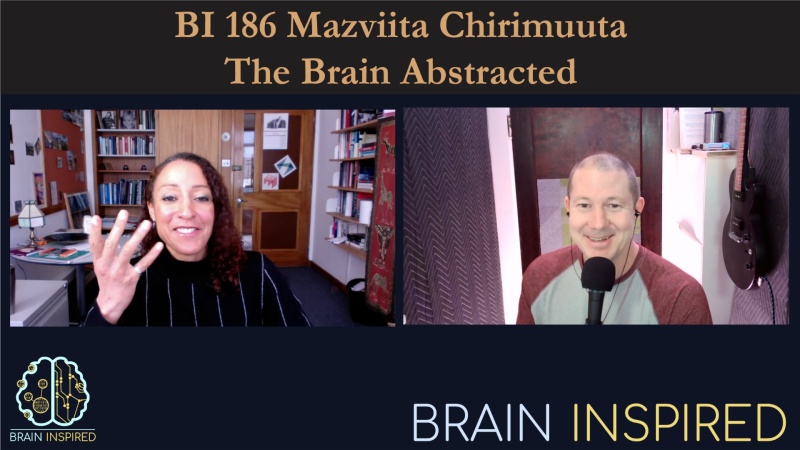BI 191 Damian Kelty-Stephen: Fractal Turbulent Cascading Intelligence
Description
Support the show to get full episodes and join the Discord community.
Damian Kelty-Stephen is an experimental psychologist at State University of New York at New Paltz. Last episode with Luis Favela, we discussed many of the ideas from ecological psychology, and how Louie is trying to reconcile those principles with those of neuroscience. In this episode, Damian and I in some ways continue that discussion, because Damian is also interested in unifying principles of ecological psychology and neuroscience. However, he is approaching it from a different perspective that Louie. What drew me originally to Damian was a paper he put together with a bunch of authors offering their own alternatives to the computer metaphor of the brain, which has come to dominate neuroscience. And we discuss that some, and I'll link to the paper in the show notes. But mostly we discuss Damian's work studying the fractal structure of our behaviors, connecting that structure across scales, and linking it to how our brains and bodies interact to produce our behaviors. Along the way, we talk about his interests in cascades dynamics and turbulence to also explain our intelligence and behaviors. So, I hope you enjoy this alternative slice into thinking about how we think and move in our bodies and in the world.
- Damian's website.
- Related papers
- In search for an alternative to the computer metaphor of the mind and brain.
- Multifractal emergent processes: Multiplicative interactions override nonlinear component properties.
0:00 - Intro
2:34 - Damian's background
9:02 - Brains
12:56 - Do neuroscientists have it all wrong?
16:56 - Fractals everywhere
28:01 - Fractality, causality, and cascades
32:01 - Cascade instability as a metaphor for the brain
40:43 - Damian's worldview
46:09 - What is AI missing?
54:26 - Turbulence
1:01:02 - Intelligence without fractals? Multifractality
1:10:28 - Ergodicity
1:19:16 - Fractality, intelligence, life
1:23:24 - What's exciting, changing viewpoints

